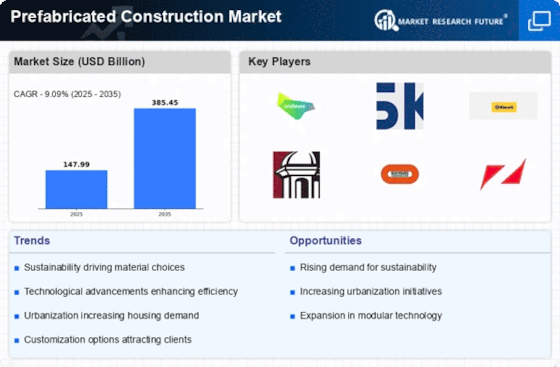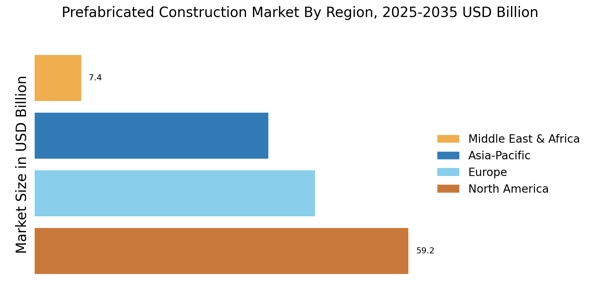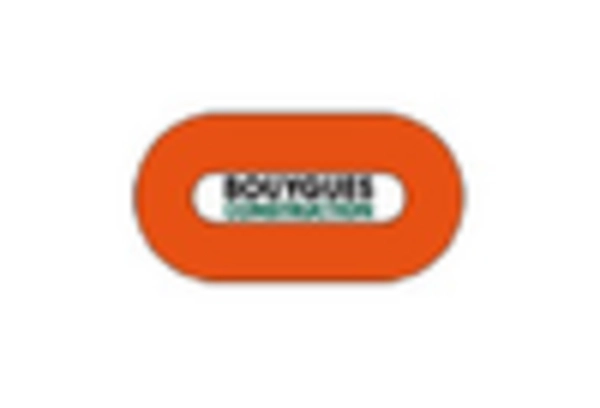North America : Leading Innovation and Growth
North America is the largest market for prefabricated construction, holding approximately 40% of the global prefabricated construction market share. The region's growth is driven by increasing demand for sustainable building practices, rapid urbanization, and supportive government regulations promoting modular construction. The U.S. and Canada are the primary contributors, with significant investments in infrastructure and housing projects fueling this trend.
The competitive landscape in North America is robust, featuring key players such as Kiewit Corporation, Turner Construction, and Modular Building Institute. These companies are leveraging advanced technologies and innovative construction methods to enhance efficiency and reduce costs. The presence of strong regulatory frameworks further supports the growth of prefabricated construction, making it a preferred choice for many developers.
Europe : Sustainable Building Practices
Europe is witnessing a significant shift towards prefabricated construction, accounting for approximately 30% of the global market share. The region's growth is propelled by stringent environmental regulations, a focus on sustainability, and the need for efficient construction methods. Countries like Germany and the UK are leading this trend, with government initiatives aimed at reducing carbon footprints and promoting energy-efficient buildings. The competitive landscape in Europe includes major players such as Bouygues Construction and Skanska, who are at the forefront of adopting innovative prefabrication techniques. The market is characterized by a strong emphasis on quality and sustainability, with many companies investing in research and development to enhance their offerings. This focus on modular construction aligns with the EU's broader goals of sustainable development and urban regeneration.
Asia-Pacific : Emerging Market Potential
Asia-Pacific is emerging as a significant player in the prefabricated construction market, holding around 25% of the global market share. The region's growth is driven by rapid urbanization, increasing infrastructure investments, and a growing demand for affordable housing. Countries like China and Japan are leading the charge, with government policies supporting the adoption of prefabricated methods to address housing shortages and improve construction efficiency. Large-scale infrastructure projects are accelerating adoption within the precast prefabricated construction market in Asia-Pacific.
The competitive landscape in Asia-Pacific is diverse, featuring both local and international players. Companies such as Lendlease and Z Modular are expanding their operations in the region, capitalizing on the growing demand for prefabricated solutions. The market is characterized by a mix of traditional construction practices and modern prefabrication techniques, creating opportunities for innovation and collaboration among industry stakeholders.
Middle East and Africa : Resource-Rich Opportunities
The Middle East and Africa region is witnessing a burgeoning interest in prefabricated construction, accounting for approximately 5% of the global market share. The growth is driven by rapid urbanization, significant investments in infrastructure, and a push for cost-effective building solutions. Countries like the UAE and South Africa are at the forefront, with government initiatives aimed at enhancing construction efficiency and sustainability in urban development.
The competitive landscape in this region is evolving, with key players such as Balfour Beatty and Algeco making strides in prefabricated solutions. The market is characterized by a growing emphasis on innovative construction methods to meet the demands of large-scale projects. As the region continues to develop, the adoption of prefabricated construction is expected to rise, supported by favorable regulatory frameworks and investment opportunities.

















